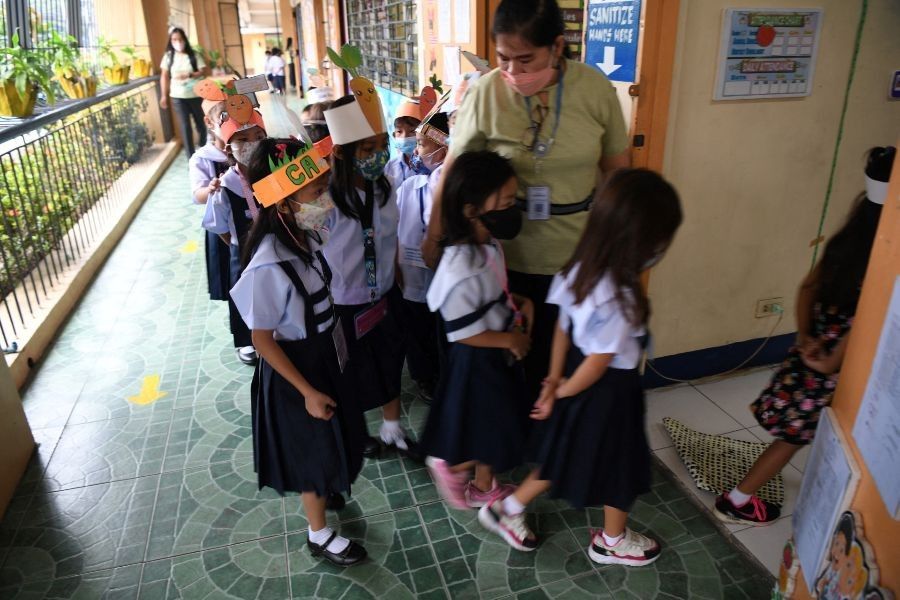Lawmakers tell PSA: Literacy should include ability to comprehend

MANILA, Philippines — Lawmakers are pressing the Philippine Statistics Authority to change how it measures basic literacy, saying its exclusion of the ability to comprehend could paint a misleading picture of the country’s true literacy levels.
On Wednesday, October 16, Rep. Roman Romulo, the chairperson of the House basic education panel, questioned the PSA for using outdated definitions for basic and functional literacy, noting that its recent revisions remain misaligned with what the Department of Education uses.
PSA this year revised its criteria for basic and functional literacy, the first time it has done so since 1989.
Definitions. Under the new definition, a person is considered have basic literacy if they can read, write and compute. The 1989 definition only requires one to be able to read and write.
Functional literacy — a step higher from basic literacy — requires one to be able to read, write, compute and comprehend. The old definition previously considered the ability to read, write and compute as enough to deem a person functionally literate.
The PSA changed its literacy measurements ahead of its conduct of the 2024 Functional Literacy, Education and Mass Media Survey, a nationwide survey on the country's education and literacy status. Held every five years, the survey in 2019 yielded a result that surprised many: 94% of Filipinos aged five were deemed basic literate.
During the hearing, both Romulo and Rep. France Castro quizzed the PSA over the value of collecting data that shows individuals can read and write but not understand what they are reading.
Literacy vs comprehension. Bewildered by PSA's new definition, Romulo stressed that "[basic] literacy should always include comprehension."
"What's the value of being able to read, write, compute but you cannot comprehend?" Romulo said.
DepEd Undersecretary Gina Gonong also disagreed with the PSA's definition of basic literacy, saying the department includes comprehension in its criteria.
Similarly, Castro also questioned the PSA's definition for functional literacy, which she said should include analytical skills.
"A person who can comprehend should also know how to analyze (in the definition of functional literacy). But if it is just limited to comprehension, we cannot use this for school settings," the lawmaker added.
Recalling the results of the PISA creative thinking test, where the Philippines scored at the bottom, Castro said: "We should include analysis, critical thinking and logical reasoning if we want this to benefit our schools."
With the data collection for the 2024 survey already in motion, Romulo said the statistics body may just be gathering data that have "low value to policymaking in Congress or even to the Department of Education."
"Because the basic literacy is incorrect... It should at the very minimum require comprehension," Romulo added.
Robelyn Revilla of the PSA's social development statistics division explained that the PSA consulted with education stakeholders, including DepEd and the government's literacy coordinating council, prior to changing its literacy criteria.
Dissatisfied with the explanation, Romulo said he was among those who were briefed about the new definition and pointed out that the PSA "just reported this."
"We questioned this. I personally questioned this," he said.
Acknowledging that Revilla was only there to speak on behalf of the PSA, the House basic education panel chair urged her to relay the lawmakers' concerns with her principals.
Bloated literacy rates
Prior to changing its methodology this year, the PSA recorded functional literacy rates much higher than what international assessments estimate for the country's student population.
"The results for basic and functional literacy are often questioned because they are extremely high, which contradicts the results of tests and assessments measuring student proficiency," Revilla said in mixed Filipino and English.
"Therefore, when we conducted the 2024 FLEMMS, we consulted our partners at [DepEd] and collaborated with EDCOM 2. We then worked to update the definitions and methodology used for FLEMMS," she added.
In 2019, the PSA estimated nine in 10 Filipinos aged 10 to 18 were functionally literate. This is much higher than the World Bank learning poverty data that found only one in 10 Filipino kids aged 10 could read simple text.
In an experiment, the PSA applied its new criteria to its 2019 data and saw the functional literacy rate for Filipinos aged 10 to 18 drop from 90% to 62%, according to its presentation on Wednesday.
The drop becomes more pronounced among elementary students. In 2019, the PSA said 82% of students attending grades four to six were functionally literate. But if it uses the new definition for functional literacy, the literacy rate drops to 55%.
- Latest
- Trending





























